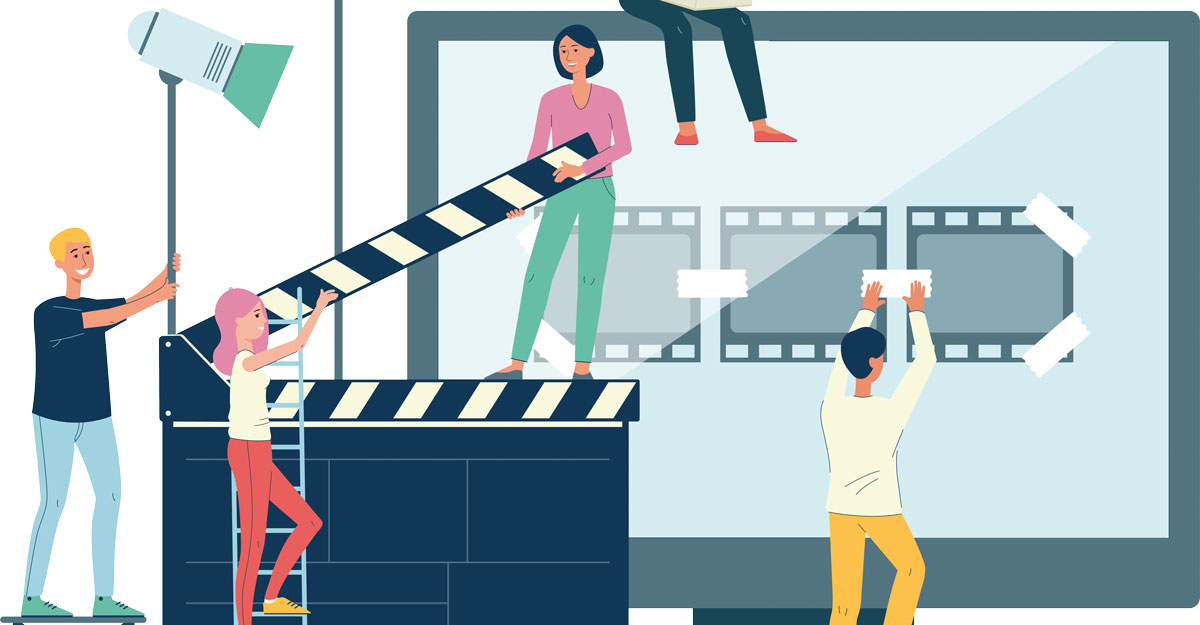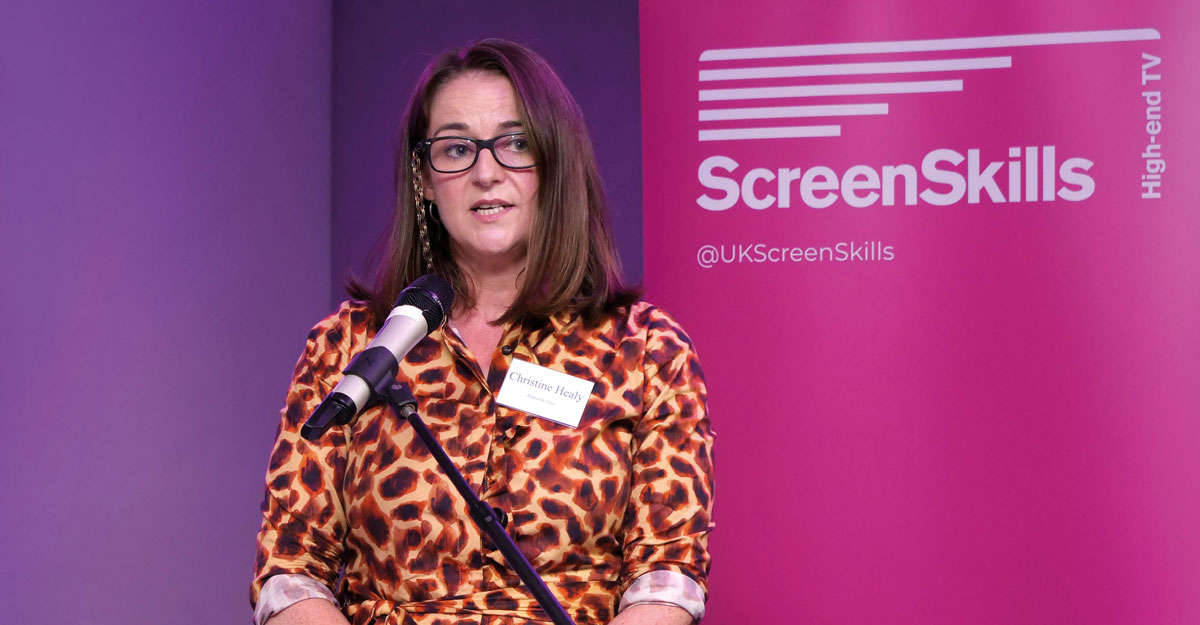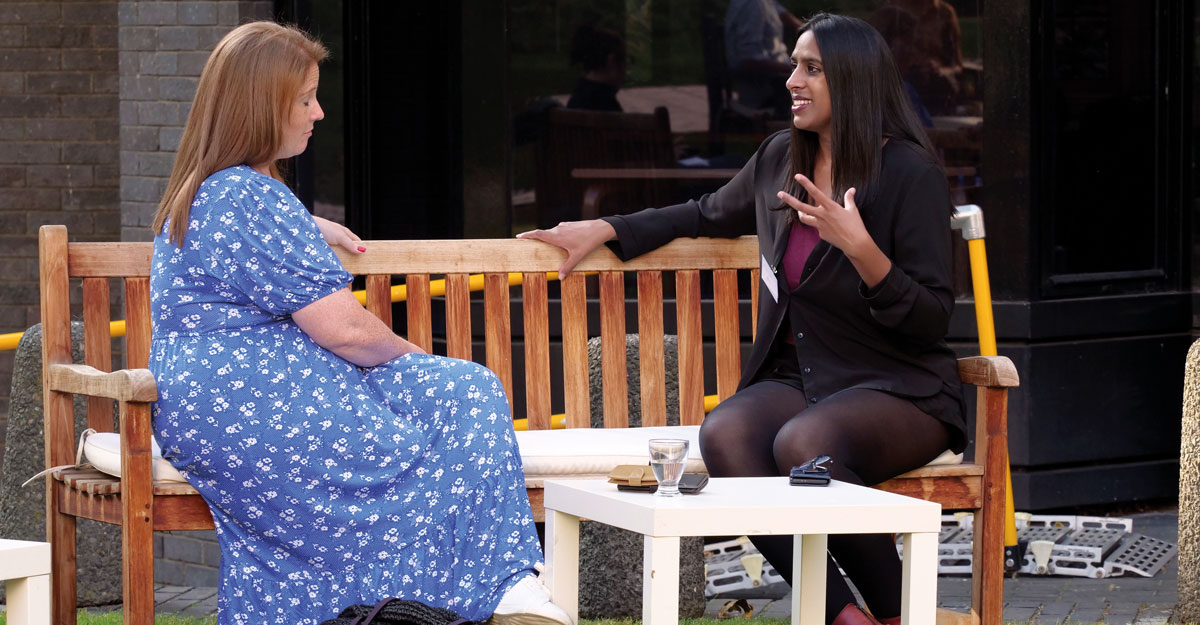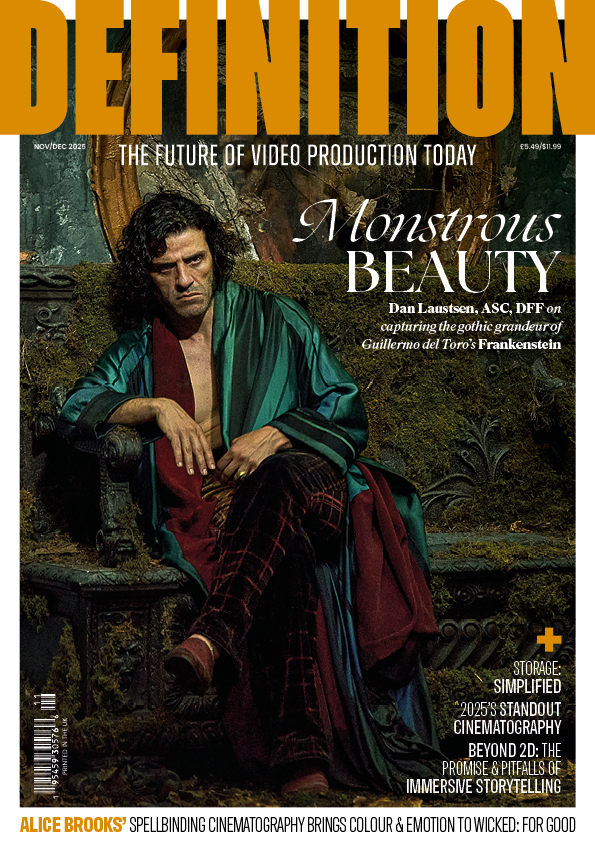
Got the skills?
Posted on May 24, 2022 by Samara Husbands
Questions Lee Renwick
Images ScreenSkills
Kaye Elliott, director of high-end television at ScreenSkills, paints a detailed picture of opportunity and growth within the UK’s production industry
Workers are the backbone of the screen. Every transformative film or bingeable episodic we watch is only made possible by hundreds or thousands of brilliant individuals. But the high level of talent pooled on sets isn’t developed overnight. For some, higher education paves the way. For others, knowledge is accrued within the role itself. But the path for many includes dedicated skills training.
There are few UK providers as prolific as ScreenSkills. With a nationwide reach and staggering number of opportunities, there’s plenty of work being done here. The full breadth of courses, training days, placements and beyond can be viewed online, and those at every single step of their career journey are encouraged to see what’s available. Taking a broader view of the current climate, Kaye Elliott delivers her expert insight.
What kind of individuals come to you at the entry level, and what are they looking for?
I think there’s still a job to be done to try and encourage people from all different backgrounds to consider screen as a really viable and successful career. Of course, that’s one of ScreenSkills’ key purposes. We’re here to ensure people understand that all you need is the right attitude and talent. There are hundreds of positions within screen and amazing openings across all skill sets.
One of our programmes, First Break, is there to encourage people who may not be new entrants from education. It’s not only for young people, either. You may want to retrain, or could have been in a young offenders’ unit, looking to get on a good career path. We welcome these individuals to open-access evenings, where we don’t talk jargon. Once people understand the positions they may be suited to, we advance to more hands-on events and boot camps, introducing them to the industry. And then, there are paid – which is a very important factor – job shadowing opportunities.
Beyond that, there’s Trainee Finder, which we’ve been running as a hugely successful programme for around a decade. Trainees are taken on across a host of trades. They’re with us for 12 months, during which they usually get a few chances to work on real content, and 99% of the time that’s their entry point. It’s a really great way of getting a foot on the ladder.
Has there been an increase in entry-level individuals seeking training, following these initiatives?
Very much so. Fantastic work is being done to open doors to people, and the screen sector is booming. It remained very buoyant throughout the pandemic and, before that, was showing itself as a growth industry. We absolutely hope people see how viable and secure it is, no matter where you are in the nation.
There are massive pieces of content being made all over the UK. London remains one hub, but production companies are routinely making dramas in the north of England, Glasgow and Bristol – to name just a few. In line with that, we are seeing a real uptick in the amount of interest and number of
people we’re able to support.

Is skills development matching the rate of wider industry growth?
It’s a very positive challenge, to be at a time when the industry is going through such significant growth that, understandably, filling all the roles is difficult. You can’t create a line producer overnight – that takes years of experience. So it’s important to bring people in at the bottom, but it’s also paramount that we’re supporting those advancing in their careers. The challenge is the huge surge in the amount of content being made. In the last financial year, we saw a doubling of the production we supported.
The pandemic caused an unusual situation, where productions that hadn’t been able to take place all happened at once. But we’re also seeing a hugely significant increase in the quantity and scale of content made in the UK. It’s a perfect storm to very quickly run out of people. However, a huge amount of work is being done to combat that.
As you touched upon, skills development isn’t only for those at the beginning of their production career. What’s in place to ensure experienced filmmakers are keeping up with cutting-edge technologies and processes?
All the money we spend on high-end television skills investment is from industry contribution. That means we have an industry that’s incredibly engaged with how the money is spent. Every broadcaster and streamer with a footprint in the UK – indie and beyond– is represented.
We also have ten working groups, focusing on different roles within the filmmaking chain. It means we have specialist fingers on the pulse of skills development. Those working groups, all industry members, are directing what we do with that funding.
Two thirds of our investment within high-end TV is on mid-level development. It’s something we take incredibly seriously. We know virtual production will impact everybody, so training in that sector has certainly been a focus. Our VFX working group spend most of their investment on some of those new technology pieces, to ensure people develop very specialist skills.
In terms of the future, all of our working groups have just met. Very shortly, we’ll be announcing the figures for the next year. Brand-new opportunities for training and a renewed focus on how we support sectors will be visible online by mid-June. There’s lots
of niche activity.

Can you share some detail on ScreenSkills’ opportunities beyond hands-on development?
It’s important we all look at how to make sure the industry remains a nice place to be. People shouldn’t feel like career breaks – whether that’s for children or anything else – are the end of the road. We do a number of Return to Work programmes, to avoid losing talent. We need to make the industry robust, and looking at ways of retaining people is a means of doing that.
We also deliver leadership and management training, which is becoming very popular. People have to understand the responsibility of supervising teams. Managers should create a positive work environment, be cognisant of their language and consider the way they’re interacting with teams. The training is free to all our contributing productions. We come to them, and it’s just half a day of development.
Recently, we’ve been expanding a scheme called Leaders of Tomorrow, which looks to change the make-up of our direction in the future. The industry needs individuals from different backgrounds. Currently, we’ve got 19 people on that programme who’ve been put forward with leadership potential. Inspirational figures make people think, ‘if you could do it, maybe I can, too’.
Finally, ScreenSkills has a bursary fund, as well. It generally stays available all year round – any individual working in the industry can access it. It could be used for training, pieces of new kit and more. There’s a lot we can do that’s ancillary to the training. It’s all about helping the individual.
The pandemic was a setback, but the figures are positive now. Other experts have shared a promising future for the UK. No guarantees can be made, but do you still see screen as a promising career to commit to?
In a word, yes. I would say now, more so than ever. We are in a very fortunate position to have a generous tax incentive, which enables the world to see the UK
as an absolutely excellent place to make your production.
We also have strong content from broadcasters like the BBC and ITV. They’re still our major supporters. Look at everything, from drama, factual and entertainment to daytime TV, and there is a whole value chain. The sheer number of jobs that creates is significant. When you double that up with the major streamers, who are committed to taking spaces in studios for ten years plus, it’s clear this isn’t all going away tomorrow.
Originally published in the June 2022 issue of Definition Magazine.








